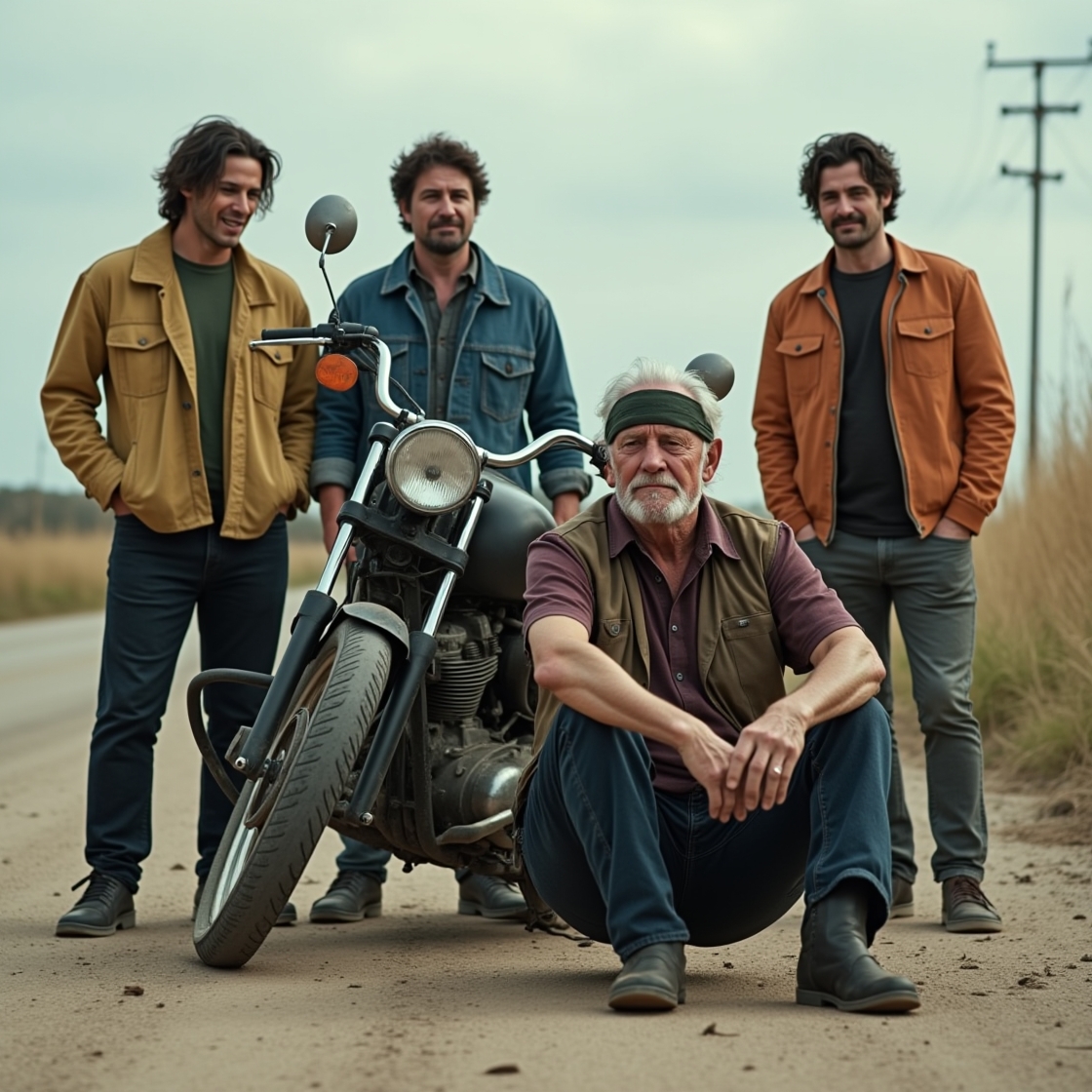I fell hard, my hands scraped, knees aching, trying to lift my Harley. But what hit hardest wasn’t the pavement—it was the laughter. Not cruel, not loud. Just… pitiful.
That kind of laugh from my motorcycle brothers didn’t come from joy. It came from judgment. From seeing me no longer as a road warrior, but as someone out of place.
For five decades, I’d earned every mile, every scar. And now? I was a man they pitied. A man too old to ride.
“Need help, Ghost?” Razor asked
He lifted my bike like it was nothing. Young, fit, confident—Razor had taken over as club president. He was thirty-something, full of energy, half my age.
Two guys helped me up.
“Maybe it’s time for a trike?” one joked. “Something easier on the knees.”
I faked a laugh. Said something vague to save face. But inside, I was gutted.
Not even that time I took buckshot to the leg hurt this much.
Both knees throbbed—the right rebuilt after a wreck in ’79, the left worn out from carrying the extra weight all these years.
That night, I ran my fingers over my vest. So many patches. So many memories. Not souvenirs, but proof. Of loyalty. Brotherhood. Loss.
These new guys didn’t know the weight those stitches carried.
The next morning changed everything
I was prepping my gear when Razor came up, flanked by younger members.
“We talked last night,” he said. He didn’t meet my eyes.
“It’s time to hang up your patch.”
Some looked sad. Others just nodded. And a few—guys I’d mentored—couldn’t even face me.
I had three options:
Push back and fight.
Leave quietly.
Or remind them who I really was.
I picked up my phone and called Tommy Banks. A name I hadn’t said out loud in two decades.
Tommy was my road partner back in the ’70s. These days, he’s a trauma surgeon—still wild, still brilliant. I told him everything.
He was quiet. Then:
“Come out here. Let’s talk.”
Two days later, I rolled up to Tommy’s
His garage looked like a mini hospital—modern, clean, prepped. That was classic Tommy.
He got to work on my knees. While he treated me, we talked. About rides. Lost friends. And how the club had changed.
When he finished, he grinned.
“There’s a ride tomorrow. The Medicine Wheel Run. Five hundred miles through the Black Hills. No stops—just gas breaks.”
I raised an eyebrow.
“You think I can make it?”
“These injections won’t turn back time,” he said, “but they’ll dull the pain. The rest? That’s up to the Ghost I used to ride with.”
I showed up early. The sun was barely up
Hundreds of bikes. Mostly younger riders, full of swagger. Razor was already there. He looked shocked when he saw me.
The first hundred miles? Smooth. Easy.
The next hundred? I had to focus.
By mile 300, riders were pulling over. Engines overheated. Riders fatigued. But I kept going.
Every mile tested me—not my body, but my grit.
At mile 400, I passed Razor. His engine steamed on the roadside. He looked stunned as I rolled by.
Crossing that finish line nearly dropped me
I could barely walk. My back roared. My knees burned. But I made it.
That night, as the stars came out, Razor walked over to my campfire.
“We had another meeting,” he said.
“Your patch stays. For life. No debate.”
I looked up. “Why the change?”
He didn’t blink.
“Because you reminded us what riding’s really about. Not speed. Not youth. It’s about heart. About earning it. And you? You’ve earned more than any of us.”
The next morning, 500 riders gathered again
This time, it wasn’t about the challenge. It was about respect.
Leading the group? One old man on a Softail, jacket faded with stories.
They could’ve passed me. They didn’t.
I still ride—slower now, more breaks, stiff knees in the cold. But I ride for those we lost. For the road that shaped me.
And for a brotherhood that survives—so long as we remember what it means.
